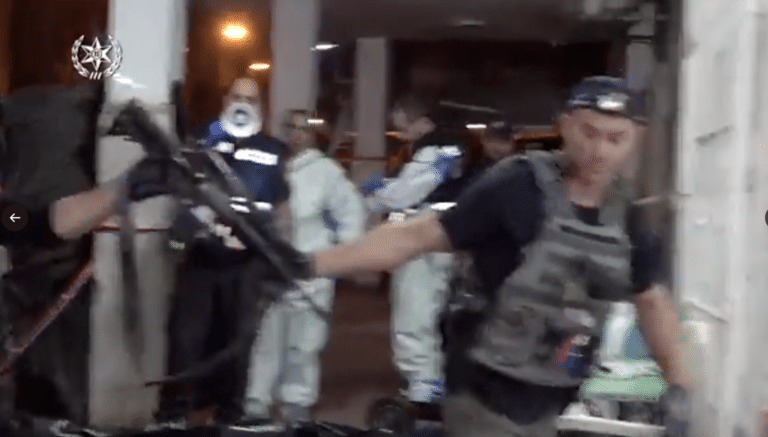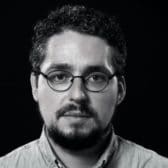
Israeli police forces are on high alert following a week of violence that left 14 people dead in a string of attacks. Regional experts are calling the surge in violence the worst in six years.
“Be alert. Whoever has a weapons license, this is the time to carry it,” Israeli Prime Minister Naftali Bennett told the nation.
In a rare statement, Palestinian Authority President Mahmoud Abbas condemned the terrorist attacks:
“The killing of Israeli and Palestinian civilians will only lead to a deterioration of the situation ahead of Ramadan,” Abbas said. “We are trying to obtain some stability.”
March: A month of violence
March 2
Follow up: Following the stabbing attack near Hizma Checkpoint; ISF are currently conducting a search operation in Hizma village and blocking the village main entrances; Clashes expected pic.twitter.com/fJ99SLdEo8
— Local Focus – Security Alerts (@LocalFocus1) March 2, 2022
An East Jerusalem man stabs a 48-year-old civilian near the Hizma checkpoint who was in the area for “commercial reasons.” The man was moderately wounded and made his way to the Hizma checkpoint with an IDF medical team and was evacuated to Jerusalem for medical treatment.
March 3
🔴 a Jewish man (40) was moderately to seriously injured in a stabbing attack in Hizma, northeast of Jerusalem.
— Inbar Cohen (@InbarCohen13) March 3, 2022
It happened less than 24 hours after a 48-year-old resident of Jerusalem was stabbed in a store in the same town. pic.twitter.com/HIGHyEIsoa
An East Jerusalem man stabs a man in his 40s in the same town at a butcher shop near the Hizma checkpoint. The man was also moderately wounded. The suspect was arrested and is believed to be behind the attack the day before. Police say the stabbings were “nationalistically motivated terrorist attacks.”
March 6
An East Jerusalem man stabs a police officer in the Old City of Jerusalem, lightly wounding him. The suspect is shot dead.
March 7
🇮🇱 — GRAPHIC VIDEO: Israeli Police publish security footage of the stabbing attack in the old city of Jerusalem earlier this evening, which moderately injured two police officers — The Palestinian terrorist was shot and later died. pic.twitter.com/pz7lfsFFo0
— Belaaz News (@TheBelaaz) March 7, 2022
A resident of the Jalazone refugee camp stabs two officers in the Old City of Jerusalem, moderately wounding them. The suspect is shot dead.
March 19
Full video of today’s terror attack in #Jerusalem (Old City). The perpetrator, a #Palestinian man in his 20’s, savagely stabbing an #Israeli man. Thankfully Israeli security forces were quick to respond. pic.twitter.com/RVGhdIL5GB
— Arsen Ostrovsky (@Ostrov_A) March 19, 2022
An East Jerusalem man stabs a 35-year-old man in Jerusalem, lightly wounding him. The suspect is shot and seriously wounded.
March 20
BREAKING NEWS: Reports that at least 1 police officer was stabbed near Damascus Gate of the Old City of Jerusalem. This would be the 2nd stabbing attack in 3 days. pic.twitter.com/pTMrgQyo7B
— Tom Ochiel (@RobustPerfomer) March 20, 2022
A police officer is stabbed at Damascus Gate near the Old City of Jerusalem.
March 22
TERROR IN ISRAEL: Earlier today, an Palestinian terrorist killed 4 Israelis in a ramming and stabbing attack in the city of Be'er Sheva. An armed bus driver, who heroically confronted the terrorist, shot and killed the terrorist. 3 others have been hospitalized.
— Moshe Schwartz (@YWNReporter) March 22, 2022
🚨Graphic video pic.twitter.com/huyOcHevEl
An Israeli citizen with suspected ties to ISIS kills four people in a combined car ramming and stabbing attack in Be’er Sheva. The suspect is shot dead by an armed bus driver.
March 27
Shocking footage from the terrorist attack in Hadera just minutes ago where they attackers opened fire on civilians. 2 Israelis already confirmed dead. pic.twitter.com/T3BJK0JwCd
— Emily Schrader – אמילי שריידר (@emilykschrader) March 27, 2022
Two Israeli citizens shoot and kill two Border Police members (both 19 years old) in Hadera who were sitting outside of a cafe. The suspects, who are believed to have ties to the Islamic State group, were shot dead by undercover officers who were eating at a nearby restaurant. The shooting is believed to have been motivated by the Be’er Sheva attack.
March 29
תיעוד מצלמות הגוף – השוטרים מקבלים את הדיווח ומנטרלים את המחבל בבני ברק pic.twitter.com/a2VpARzRKB
— משטרת ישראל (@IL_police) March 30, 2022
A West Bank resident kills five people with an M-16 in Bnei Brak outside of Tel Aviv. The shooter was shot dead by a police officer who arrived on a motorcycle, the officer (a 32-year-old Arab Christian) later died from wounds he suffered during the attack.
April 7
CCTV of people escaping the shooting attack in Tel Aviv pic.twitter.com/jV1FQ4mGCd
— Amichai Stein (@AmichaiStein1) April 7, 2022
On April 7 a mass shooting took place on Dizengoff Street in Tel Aviv, Israel. Raad Hazem, a 28-year-old Palestinian from Jenin, killed three people and injured six.
A melting pot of victims
The victims of the attacks represent a cross-section of Israeli society: Foreign workers, Jewish, Druze, Arab Christian, young and old.
Be’er Sheva attack
Our hearts mourn for the victims of yesterday’s terror attack in Israel.
— CIJA (@CIJAinfo) March 23, 2022
1) Moshe Kravitsky z”l
2) Doris Yahavas z”l
3) Laura Yitzhak z”l
4) Menachem Yehezkal z”l
May their memories be a blessing. pic.twitter.com/AvlgH32yC4
- Rabbi Moshe Kravitsky (48): A father of four, he was a Chabad emissary in Be’er Sheva who for 10 years ran a local soup kitchen.
- Doris Yahbas (49): Leaves behind a husband and three children, she was the aunt of one of the first responders who arrived at the scene.
- Menachem Yehezkel (67): His family released the following statement: “It’s a heavy blow, a terrible tragedy, he never bothered anyone. He just went out for a walk.“
- Laura Yitzhak (43): A mother of three, she was reportedly on her way to meet her husband when she was attacked. She was the sister of a police officer who later arrived at the scene of the attack.
Hadera attack
Yesterday, two Israelis were murdered in a horrific terrorist attack in Hadera, perpetrated by Israeli-Arab Isis sympathizers.
— Israel ישראל (@Israel) March 28, 2022
The victims were just 19 years old.
Their names were Yezen Falah and Shirel Abukarat.
May their memory be a blessing. pic.twitter.com/RBCfySEKyj
- Shirel Aboukrat (19): According to Aboukrat’s mother she moved the family from France because she wanted them to live in safety: “We fled France to have security and here she died, in our country. It does not make sense. I wanted to give them a good life and security.”
- Yazan Falah (19): A resident of the Druze village of Kisra-Sumei in the Galilee, he joined the Border Police a year ago and is survived by his parents and a brother and sister.
Bnei Brak attack
The five victims of the Palestinian terror attack in Bnei Brak.
— Adam Milstein (@AdamMilstein) March 30, 2022
Rabbi Avishai Yehezkeli
Amir Khouri
Victor Sorokopot
Dimitri Mitrik
Yaakov Shalom
May their memories be blessed. pic.twitter.com/08glI4E2aw
- Amir Khoury (32): A Christian Arab who served on the Bnei Brak Police motorcycle unit died from wounds he suffered after engaging the terrorist suspect. Khoury leaves behind his parents and two sisters.
- Dimitri Mitrik (24): A Ukrainian construction worker, he was killed along side his friend outside of a store.
- Ya’akov Shalom (36): Was driving home when he was shot by the gunmen. He is reported to be the son of a prominent rabbi in the Yemenite community who died last year from Covid. Shalom is survived by his mother, wife and four children.
- Victor Sorokopot (32): A Ukrainian construction worker, he was killed along side his friend outside of a store. He leaves behind a wife.
- Avishai Yehezkel (29): A yeshiva student, Yehezkel was killed while shielding his 2-year-old son in a stroller from the attacker’s gunfire. He leaves behind a wife, who is eight months pregnant, and his son.
Tel Aviv attack
Our hearts are heavy for the victims and wounded of last night's terrorist attack in Tel Aviv. pic.twitter.com/cXrO1gKZG6
— American Jewish Committee (@AJCGlobal) April 8, 2022
Who’s behind the attacks?
In the two deadliest attacks, Be’er Sheva and Bnei Brak, the suspects both served jail time for suspected terrorist links. The terrorist organization Hamas praised both attacks and the suspects in Be’er Sheva and Hadera have ties to ISIS.
“After a period of quiet, there is a violent eruption by those who want to destroy us, those who want to hurt us at any price, whose hatred of Jews, of the State of Israel, drives them crazy,” Bennett said in a short video address.
“They are prepared to die – so that we will not live in peace,” he added.
Be’er Sheva attack
The assailant, Mohammed Abu al-Kiyan, was an Israeli citizen from the nearby Bedouin town of Hura. He served time for “security-related offenses” and was a known supporter of ISIS. In 2016 al-Kiyan was sentenced to four years in prison for establishing a cell that intended to fight with ISIS in Syria.
Bnei Brak attack
Police say the terrorist in the Bnei Brak attack was Dia Hamarsha, 27, from the northern West Bank village of Ya’bad. Hamarsha was jailed for six months in 2015 for dealing in illegal firearms and for having affiliations with a terrorist group. Officials say he was working illegally at a construction site in Bnei Brak.
Hadera attack
The two suspects were from the Arab-majority Israeli city of Umm al-Fahm in northern Haifa. ISIS claimed responsibility for the attack, calling it a “twin immersive commando attack by Islamic State Fighters.” The last time ISIS claimed responsibility for an attack in Israel was in June 2017.
Bottom line
Israel is facing a unique security crisis both domestically and from terrorists located in the West Bank. The shooters behind the attacks in Be’er Sheva and Hadera were Israeli citizens stoking fears of radicalization and reprisals.
“There’s fear that the attack will harm coexistence in general,” said Mohammed Abu Hussein, a social activist, to Haaretz.
On top of copycat attacks, international terrorist organizations like ISIS are also behind the recent wave of violence and security experts fear the attacks will escalate during the Muslim holy month of Ramadan which starts on April 1st. According to data crunched by the Jerusalem Post between 2005 and 2016, Ramadan saw a 200% increase in terrorist attacks in Israel.
Originally Published Mar 31, 2022 12:02AM EDT
